|
WATER ANALYSIS
|
MENU
CONTACT DETAILS
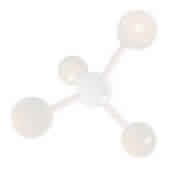
|
|
|
|
WATER TESTING SERVICES
Many areas of Africa are affected by water pollution and microbial water-bound contaminants like Cholera .
The increased demand on water suppliers has often lead to water that is unfit for human consumption, being inadvertently
supplied to your tap. This is often the case in many smaller towns throughout South Africa. Were river water is consumed: upstream contamination,
via sewerage and human use ( washing of clothes etc. ) is an important consideration for water quality.
Concerns about personal and family health may lead you to question the
safety of the water you are using.
Recent publicity about water pollution problems and their
effect on water used in the home for drinking, cooking,washing and many other
purposes. You may be particularly concerned about the quality of your
drinking water if you rely on your borehole or other private water
supply. With the availability of modern water treatment equipment and
the often aggressive marketing of these devices, you may wonder about the
need to install such equipment in your home and what if anything some of these filters do. Agricultural water requirements are often neglected. Suitable water leads to improved livestock production.
There is no such thing in nature as "pure" water. Nearly
all water contains contaminants, even in the absence of nearby
pollution-causing activities. Many dissolved minerals, organic carbon
compounds, and microbes find their way into your drinking water as
water comes into contact with air and soil. When pollutant and contaminant levels in
drinking water are excessively high, they may affect certain household routines
and/or be detrimental to human health.
Obvious problems, such as staining of plumbing fixtures
and laundry, as well as many objectionable tastes and odors, may be
evidence of excessive levels of contaminants in your water supply. Many
of these impurities are naturally present and are considered a
nuisance, presenting no hazard to human health. The presence of most
harmful contaminants, however, is not always obvious and such
contaminated water may not cause health-related symptoms for many
years. As a result, the only way that you can ensure that your water
supply is safe is to have a periodic laboratory water analysis done on your
drinking water.
SMI Analytical offers a comprehensive water analysis service,utilizing GC and GC/SAW as well as ICP/AA equipment.
Feel free to Contact us with your requirements and a quotation will be forwarded to you.
WATER ANALYSIS SERVICES
SMI Analytical can test Drinking Water for the requirements of SABS 241 ( Drinking and Potable Water for Human Consumption ).
Long term exposure to contaminated water can lead to serious health risks.
An example of natural water contamination: The mineral Flourspar occurs in many areas and can lead to excessive Fluorine in drinking water taken from borehole's.
Chronic Fluoride poisoning is manifested by weakness, weight loss, general ill health, joint stiffness, brittle bones,
discoloration of teeth ( during tooth formation ), and anemia.
Pesticide residue and industrial pollution in drinking water is a constant problem.
The list of potential water contaminants is very lengthy and
impractical to test for in its entirety. Such water testing would be
very expensive and unnecessary. In the event that you could have every
potential contaminant tested for, relatively few have established
standards, or recommended levels, to allow you to evaluate how serious
the contamination may be. Knowing which contaminants are most likely to
be a problem and being aware of the warning signs of certain
contaminants can make such testing more meaningful and less costly.
Several basic tests not only reveal the severity of specific
impurities, but also indicate the likelihood of other contaminants
being present. For example, low pH, a measure of the acidity of water,
may lead to corrosion of plumbing materials, such as copper and lead,
which may dissolve and reach unhealthy levels in drinking water. In
addition, high nitrate levels indicate contamination by surface water
or seepage which may convey other harmful contaminants, such as
pesticides, into household water supplies. For this reason, it is a
good idea to conduct routine water testing, as often as annually, for the
following:
Total coliform bacteria
Nitrate/Nitrites
pH
Total dissolved solids (TDS).
Fluoride
Organic Carbon Contaminants (Pesticides, Industrial Pollution etc.)
Borehole water tests should be performed during spring or summer, and preferably
after a rainy period. When considering the purchase of a new
home, at the very least, these tests should be performed on the
existing water system. Banks and other lending agencies may require
these and/or additional tests before approving a loan.
Water Resource Pages
Information on Common Types of Water Filters
Beware of Water Filter Scams: Points to consider before buying a water filter or water purifier.
Pdf Files
Drinking Water Quality in South Africa a Consumers Guide. 200 Kb PDF file.
A good guide to water analysis and water contaminants in South Africa 1 Mb PDF file
Water in Agriculture
SMI Analytical has helped many Agricultural Companies and farmers with there water requirements. Drinking water for livestock is just as important for animals as it is to humans .The following industries have been served.
Aquaculture
Chicken Farming
Crop Farmers
Hydroponics
Livestock
Hydroponic farmers often buy pre-mixed soluble fertilizers, These fertilizers do not take into account the total dissolved solids (TDS) in there mixing water. This leads to incorrect fertilization programs, and peak plant growth is not achieved.
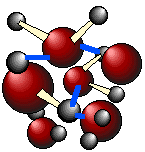
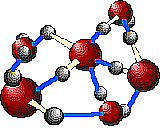
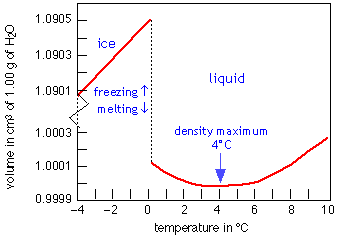
Water
is almost unique among the more than 15 million known chemical
substances in that its solid form is less dense than the liquid. The
plot at the right shows how the volume of water varies with the
temperature; the large increase (about 9%) on freezing shows why ice
floats on water and why pipes burst when they freeze. The expansion
between –4° and 0° is due to the formation of larger clusters. Above
4°, thermal expansion sets in as thermal vibrations of the O—H bonds
becomes more vigorous, tending to shove the molecules farther apart.
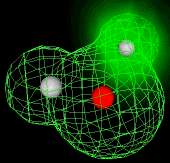
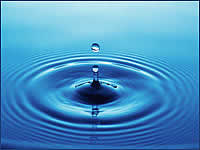
|
|
|
|
|
|
|
|
|
|
|
|
Disclaimer: The liability of SMI ANALYTICAL is limited to the cost of analysis. SMI ANALYTICAL indemnifies
itself from any legal action which may be instituted against it due to supplied data. SMI ANALYTICAL accepts
no responsibility whatsoever for any results released, however used. No part of this document may reproduced
in part or in full unless permission from SMI ANALYTICAL is granted in writing. This document may not be altered
in any way whatsoever and is printed without correction.
|
Water Chemistry Links
Water Chemical Properties
The mystery, art and science of water
Why is water blue?
Water analysis link
Questions to ask and points to consider before buying a water filter or water purifier.
|
|
Analytical Lab
SMI Analytical Laboratory Services / Chemical Analysis Laboratory Services specializes in quantitative X-Ray diffraction
SABS 241, water test, water analysis, drinking water laboratory, water lab, borehole water test, pollution in water, gas chromatography pollution monitoring, water contamination, water contaminants, cholera in water, water diseases , water purification, water sterilization, water sampling, water testing chemical analysis laboratory, nitrates, fluoride,
potable water, safety of potable water, drinking water quality, water testing laboratory,
site:, =, '.co.za', SA, RSA, za, 'loc:za'
|
|